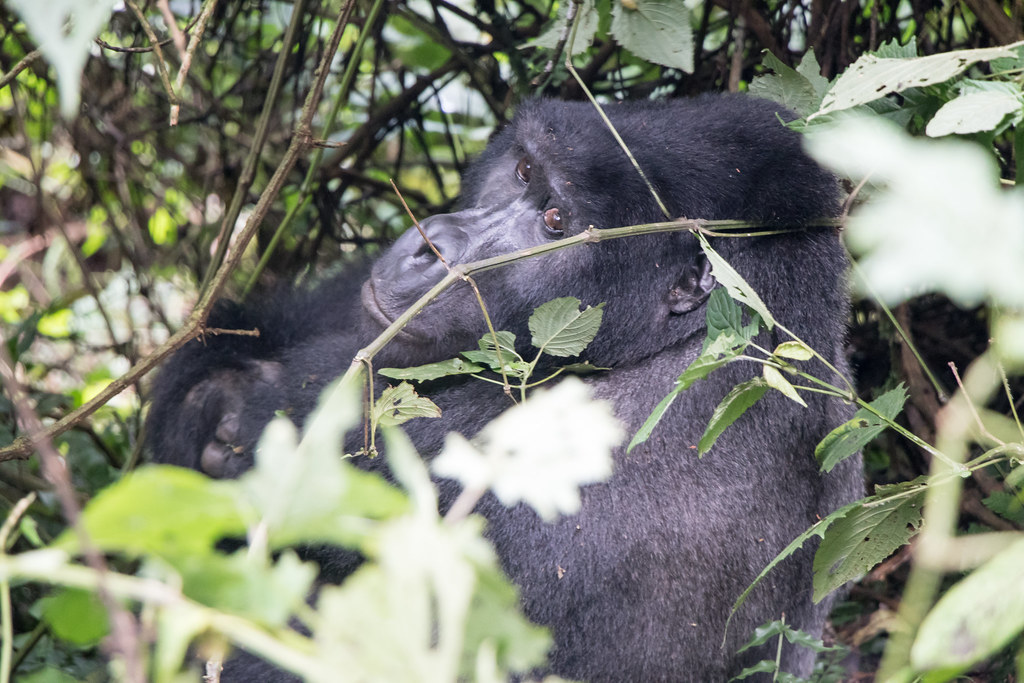Ethical Considerations of Gorilla Trekking | Balancing Adventure with Conservation
Few wildlife encounters on earth compare to standing just meters away from a family of mountain gorillas — watching a silverback’s calm dominance, a mother’s nurturing care, and the playful curiosity of young ones. Gorilla trekking in Uganda, Rwanda, and the Democratic Republic of Congo offers travelers a deeply emotional and transformative experience. Yet behind the magic lies a profound responsibility. Every visitor’s presence in the gorillas’ fragile ecosystem must be carefully managed to ensure that the experience benefits both wildlife and the communities who protect it.
Ethical gorilla trekking is not just about following rules — it’s about understanding the delicate balance between conservation, community, and tourism.
Protecting the Gorillas’ Fragile Habitat
Mountain gorillas live only in a few pockets of forest across the Virunga Mountains and Bwindi Impenetrable National Park, habitats that are as sensitive as they are beautiful. These ecosystems face constant threats from deforestation, farming, and climate change. By regulating visitor numbers and trekking routes, conservation authorities help prevent damage to vegetation and reduce stress on gorilla families.
Each trek is strictly limited to eight visitors per gorilla group per day, and time spent with the gorillas is capped at one hour. These restrictions may seem short, but they’re crucial to minimizing human impact on the forest and allowing gorillas to live as naturally as possible.
Disease Transmission and Human-Gorilla Health
Because gorillas share over 98% of human DNA, they are highly susceptible to many of our illnesses — even the common cold. For this reason, visitors showing signs of sickness are prohibited from trekking. Rangers and guides enforce a minimum distance of 7–10 meters between trekkers and gorillas to reduce the risk of transmission.
Ethical trekkers should always follow health protocols: wearing masks when required, avoiding direct eye contact for extended periods, and keeping quiet movements during observation. Even small actions — like covering your mouth when sneezing or refraining from touching vegetation near the gorillas — can make a difference in protecting their health.
Supporting Conservation Through Permits
The high cost of a gorilla trekking permit — USD 800 in Uganda and USD 1,500 in Rwanda — may surprise some travelers, but this price is fundamental to conservation. A significant portion of the fee goes directly toward anti-poaching efforts, ranger training, veterinary care, and habitat protection.
Even more importantly, part of the revenue is shared with local communities living near the parks. These funds support schools, clinics, clean water projects, and sustainable livelihood programs — all of which encourage communities to see gorillas as valuable living neighbors, not threats or competition. Ethical tourism thus becomes a vital financial lifeline for long-term conservation.
Respecting Local Communities and Culture
Ethical gorilla trekking extends beyond the forest. The people who live near gorilla habitats — in villages around Bwindi, Mgahinga, or Volcanoes National Park — are guardians of these landscapes. Travelers can make a positive impact by engaging with local tourism cooperatives, buying handmade crafts, and participating in cultural experiences such as community walks or cooking lessons.
These exchanges ensure that tourism is inclusive, respectful, and beneficial to the very people who share their land with the gorillas. Always ask before taking photos, dress modestly in rural areas, and show appreciation for cultural differences.
Choosing Responsible Tour Operators
Not all safari companies operate with the same ethics. When planning your trek, choose tour operators who prioritize environmental and social responsibility. Reputable companies — such as Dusk 2 Dawn Explorers, Imvelo Safaris, or Moreen East Africa Safaris — adhere to park regulations, use trained local guides, and promote eco-lodges that operate sustainably.
Ethical operators minimize plastic use, offset carbon emissions, and ensure fair wages for staff. Supporting these businesses amplifies the positive ripple effect of your journey.
Avoiding Exploitative Practices
True gorilla trekking happens only in protected national parks, under strict government supervision. Avoid any offers of “private gorilla encounters,” off-trail visits, or photo opportunities that break distance rules. These not only endanger the gorillas but also undermine years of conservation work. Remember — the most respectful encounters are those guided by patience, humility, and quiet awe.
A Journey That Transforms You — and Protects Them
Gorilla trekking, when done ethically, becomes more than a safari experience — it’s a spiritual exchange between species. The revenue you contribute supports conservation, the respect you show sustains harmony, and the memories you carry inspire awareness.
Each visitor plays a role in ensuring that the next generation of travelers can still walk into the mist and meet the gaze of a wild gorilla. Ethical trekking is about recognizing that we are guests in their home — and that the true privilege lies not in proximity, but in protection.





